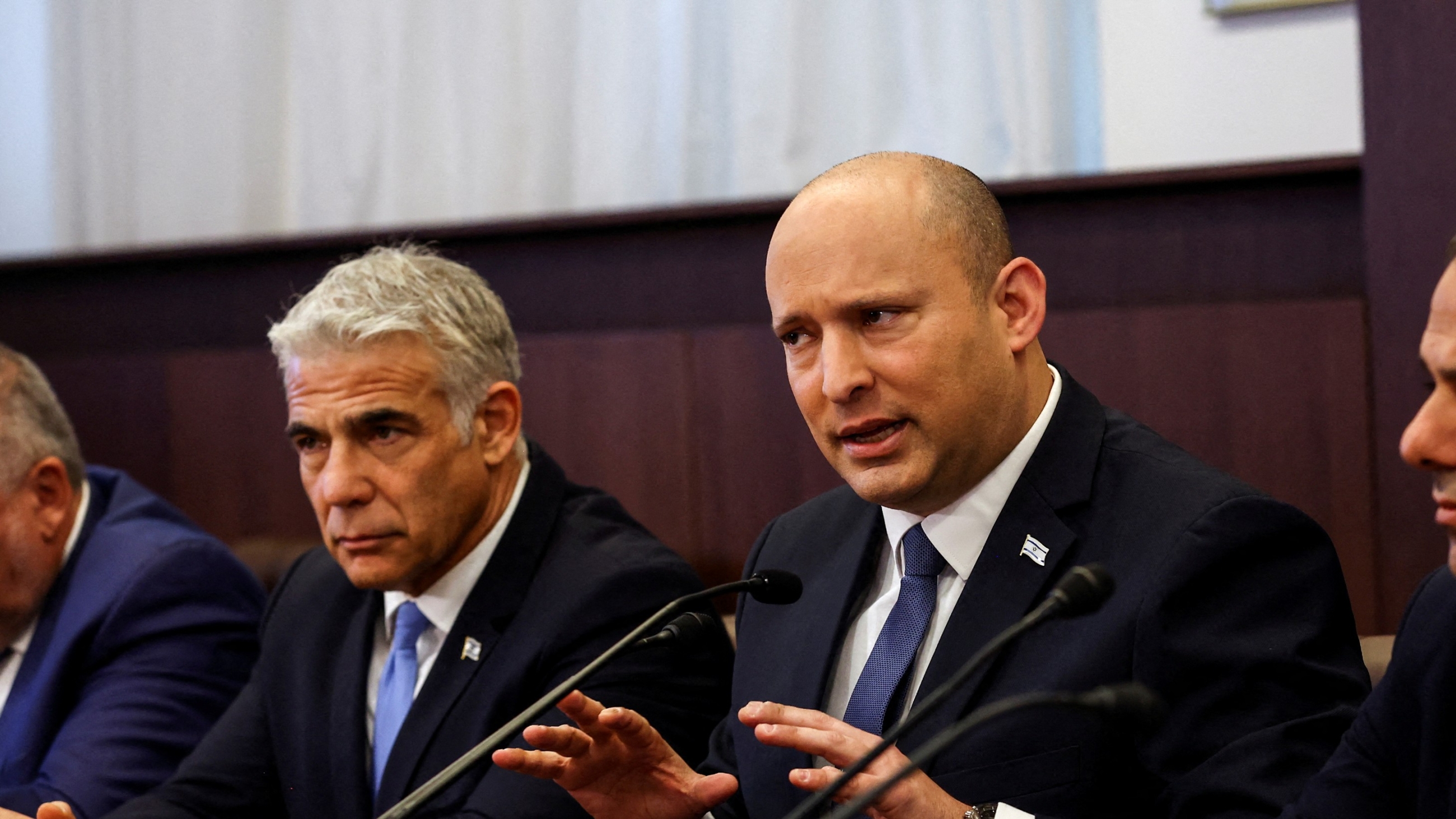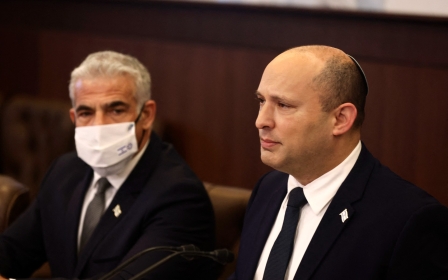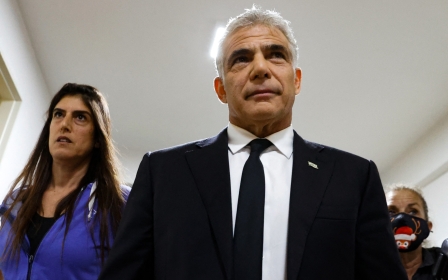Israel set for another election as coalition moves to dissolve parliament

Israeli Prime Minister Naftali Bennett and Foreign Minister Yair Lapid agreed to dissolve parliament on Monday, following weeks of pressure on their fragile governing coalition.
The leaders of Israel's governing coalition said they will submit a bill next week to dissolve parliament, an act that would pave the way for the country's fifth election in just over three years.
Bennett told reporters that the decision "was the right one for Israel" and that Lapid would "take over as prime minister in an orderly manner" until elections are held on 25 October.
Bennett and Lapid formed an unlikely coalition last June, ending former Prime Minister Benjamin Netanyahu’s 12-year stay in power.
"It is not an easy moment but we took the right decision," Bennett told reporters.
"We did everything we could to maintain this government. We didn't leave any rock unturned."
The decision comes days after the first anniversary of the coalition's formation, which included an unlikely mix of left-wing and right-wing forces, as well as parties representing Palestinian citizens of Israel.
With a razor-thin parliamentary majority, the eight-faction alliance began to fracture when a handful of members abandoned the coalition.
It lost its majority in Israel’s 120-seat parliament in April when a member of Bennett’s Yamina party announced her departure.
Netanyahu hails dissolution as 'great news'
The clearest sign of the coalition's weakness came last week when a bill extending Israeli civil law rights to settlers in the occupied West Bank was defeated in parliament. The law, which would normally enjoy broad support in parliament and has been repeatedly renewed over the past five decades, became engulfed in the increasingly bitter climate between the government and opposition.
The dissolution of the Knesset came as a surprise to several ministers in the Israeli government, including Defence Minister Benny Gantz and Interior Minister Ayelet Shaked.
"I think the government did very good work over the past year. It's a shame the country has to be dragged into elections," said Gantz, head of a centrist party in the coalition.
A source told The Times of Israel that Gantz did not know about the final decision before it was made.
Shaked was notified earlier today by Bennett of the decision, the Times of Isreal reported, although there was also no prior consultation with her.
Meanwhile, Netanyahu, who leads the opposition and is vowing a comeback despite being on trial for alleged corruption, released a video on Twitter lauding the dissolution as "great news", and pledged to establish a "national government… that would bring back national pride".
"It is clear to everyone that this government, the biggest failure in the history of Israel, is at the end of its road," Netanyahu said.
The political shakeup will not affect US President Joe Biden's visit to Israel next month. Biden will visit the country, regardless of who is prime minister of Israel, US ambassador to Israel Thomas Nides told Axios.
Middle East Eye delivers independent and unrivalled coverage and analysis of the Middle East, North Africa and beyond. To learn more about republishing this content and the associated fees, please fill out this form. More about MEE can be found here.





